"Among the films awarded honorable mention is The Grand Teton Country, carrying with it a breadth and sweep of all outdoors, a Kodacolor film by H. W. Voss, ACL. This picture is, first of all, an eloquent and colorful reply to those who do not believe that long shots can be taken successfully by this process. Time and again, in viewing this film, one is astonished by the clarity and detail of distant mountains, rearing their majestic, snow capped heads up into the cold blue of the sky, while the foreground is shown in all of its true colors. Mr. Voss has proved to skeptical Easterners that Rainbow Falls really lives up to its name. His Kodacolor camera, skillfully handled so as to produce a dark background for the rainbow formed by the sun shining on the spray, reveals perfectly that faint, tenuous beauty which is all the more remembered because evanescent. But solid, palpable colors are pictured here, too. Mountains and canyons, lakes that are mirrors, desert flowers and all the glowing colors that are part of the West, are arranged on Mr. Voss's film palette. Especially well considered was his continued use of the various neutral density filters in order to give distant shots their correct value in the brilliant sun and the inclusion of interesting action in each scene." Movie Makers, Dec. 1932, 560-561.
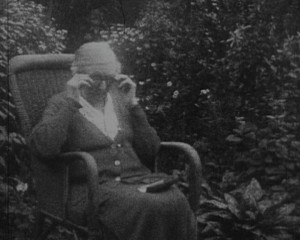
"Amateur filmmaker, cinema historian and railway engineer H.A.V. Bulleid uses slapstick humour and witty intertitles in this farce.When the family dogs team up to steal and bury Grandma's glasses, they spark a farcical chain of events in which our hapless hero attempts to track down the missing spectacles. But even when the glasses 'turn up', the ordeal isn't over as they get stuck up a tree and switched with a bomb. And in the end, it's sure to be the dogs who have the last laugh" (EAFA Database).
"Bathers enjoy the sun and sea air at the popular saltwater lido at Grange-over-Sands, on the Cumbrian coast overlooking Morecambe Bay. Stylishly designed by the council's surveyor Bernard Smith, the Art Deco lido, with its mushroom shaped pool, opened in 1932. It soon proved to be massively popular with swimmers and spectators alike, in keeping with the 1930s vogue for healthy outdoor activities." (BFI Player)
"Family scenes in the garden at Greenbank, Keswick - the children dance, do somersaults, skip and perform for parents and grandparents." (NWFA Online Database)
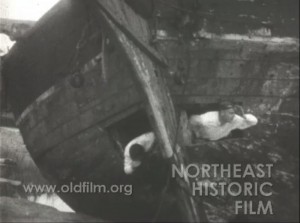
"Amateur stage play directed by Roger Clapp and starring Dorothy Stebbins." Northeast Historic Film.
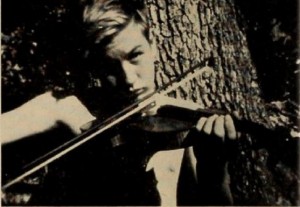
"The familiar plight of a boy who disappears just before his music lesson is the simple springboard launching The Great Man Hunt. The subsequent adventures of the older brother and a reluctant pal who search for the errant youngster build into a chase sequence (on the teen age level) that is soundly representative of basic movie techniques. In developing this theme, Donald Volkman set himself many a difficult exposure problem — notably in shots of the boys aboard a trolley car and in wooded areas with sunlight slanting through tall trees. His solution of these problems is satisfying in every case. Further, Mr. Volkman's cross cutting in the chase sequences indicates intelligent study of professional masters of this technique. A swift climax is presented amusingly as the music teacher apprehends the boy who, wearing only a pair of swimming trunks, tucks a violin under his chin and proceeds to play his lesson at the edge of a lake." Movie Makers, Dec. 1949, 455.
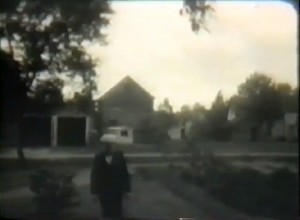
"A short amateur narrative, featuring locals in cameo roles, about a husband who tries to teach his wife a lesson by staging a fake robbery." filmpreservation.org
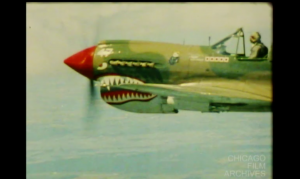
"Short film of an airshow featuring vintage Hawk, Cobra and Lightening aircraft ." Chicago Film Archives
Total Pages: 203